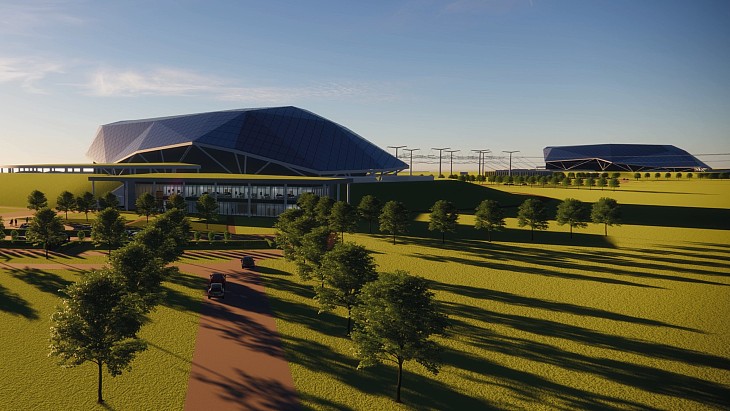The 330-tonne reactor vessel was manufactured at Rosatom's Izhora plant, in a process which took 41 months. The reactor vessel is about 13 metres long and 4.5 metres in diameter. The service life is for an initial 60 years, with the possible extension to 80 years.
The cylindrical steel reactor vessel which houses the reactor core ensures a hermetic seal and withstands high pressures and temperatures, ensuring the safety and reliability of the power unit.
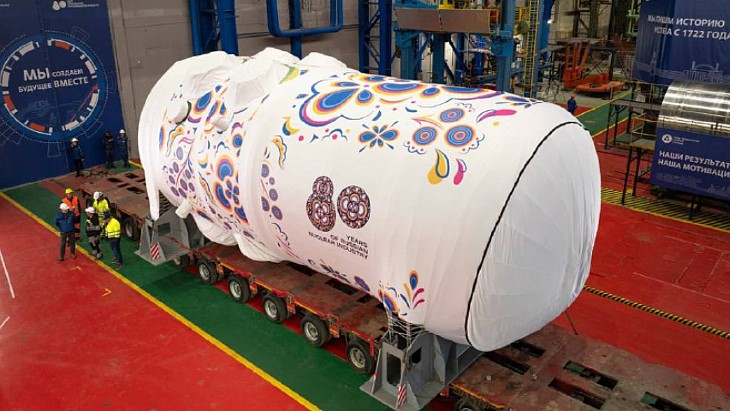
A ceremony held before the reactor pressure vessel was shipped (Image: Rosatom)
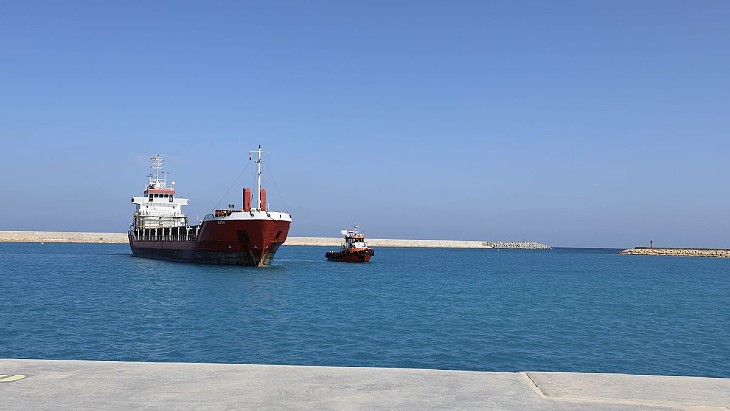
It was transported by a specially adapted cargo vessel (Image: Rosatom)
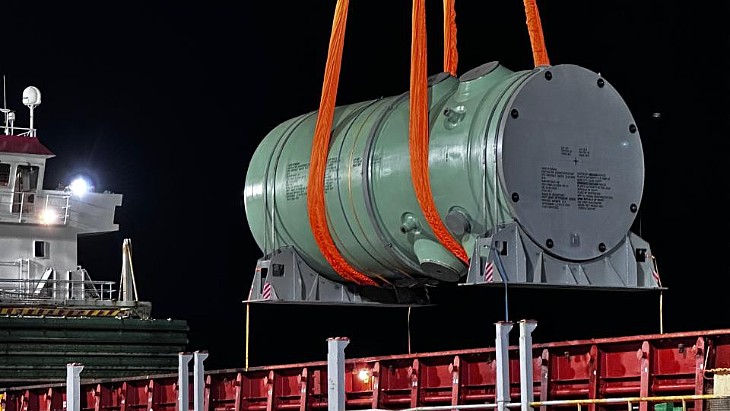
It was delivered by sea on 21 October after a 20-day journey from St Petersburg (Image: NPPA)
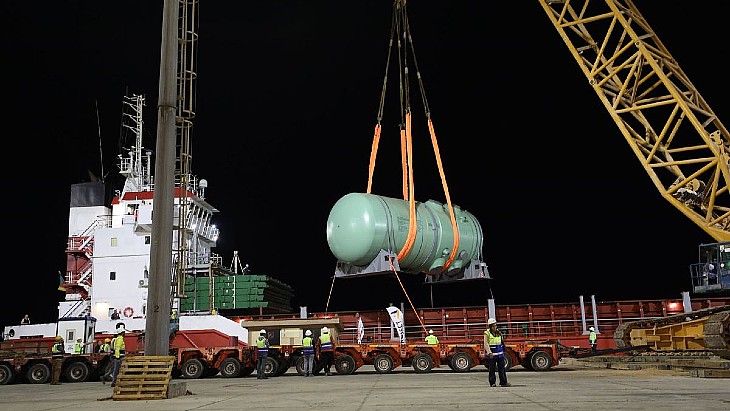
A giant crane was on hand to lift it off the ship (Image: Rosatom)
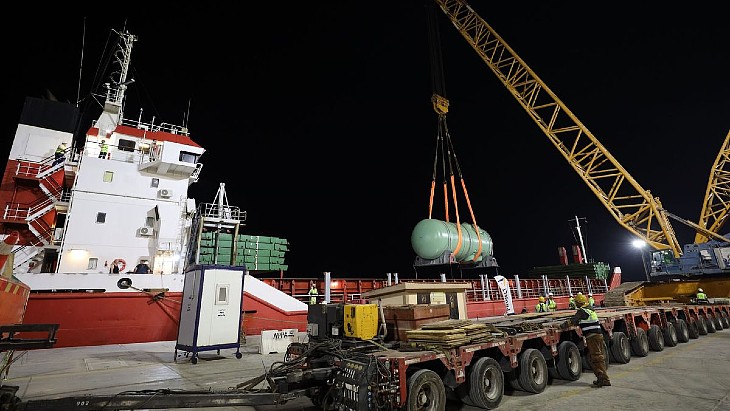
The port has been specially designed for large-scale deliveries (Image: Rosatom)
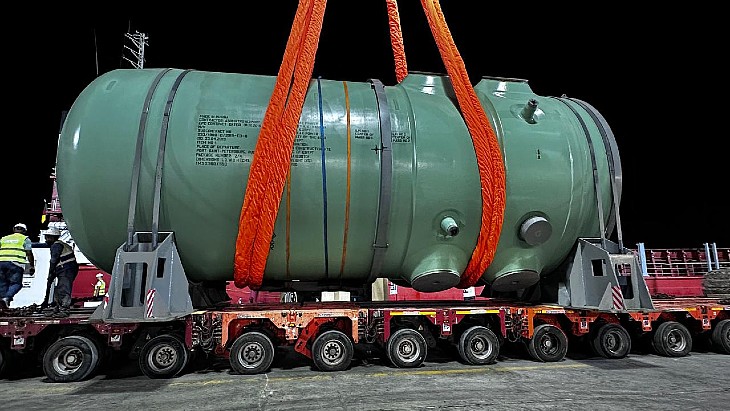
The last leg of the journey will be on land (Image: NPPA)
Sherif Helmy, Chairman of Egypt's Nuclear Power Plants Authority, said: "The reactor vessel for Unit 1 has been delivered to the specialised port at the El Dabaa NPP construction site, built by the Egyptian side for receiving large-scale equipment. Installation of the reactor vessel is scheduled for mid-November, and our teams are working tirelessly to achieve this key milestone."
Alexey Kononenko, Vice President of JSC Atomstroyexport and Director of the El Dabaa NPP Construction Project, said it was a "milestone" moment for the project and was "a reflection of the effective collaboration of our international team". He added: "We are now on the threshold of the year's most important production event - the installation of the reactor vessel for Unit 1 into its design position."
Background
El Dabaa will be Egypt's first nuclear power plant, and the first in Africa since South Africa's Koeberg was built nearly 40 years ago. The Rosatom-led project, about 320 kilometres north-west of Cairo, will comprise four VVER-1200 units, like those already in operation at the Leningrad and Novovoronezh nuclear power plants in Russia, and the Ostrovets plant in Belarus.
Under the 2017 contracts, Rosatom will not only build the plant, but will also supply Russian nuclear fuel for its entire life cycle, including building a storage facility and supplying containers for storing used nuclear fuel. It will also assist Egyptian partners in training personnel and plant maintenance for the first 10 years of its operation. Rosatom said last month that it is aiming for a future service life of 100 years for nuclear power plants.
The four units are being built almost concurrently, with first concrete at unit 1 in July 2022, followed in turn by the others, concluding with first concrete at unit 4 in January 2024. Egypt's aim is for 9% of electricity to be generated by nuclear by 2030, which would be achieved by the commercial operation of the first two units by that time, directly displacing oil and gas.

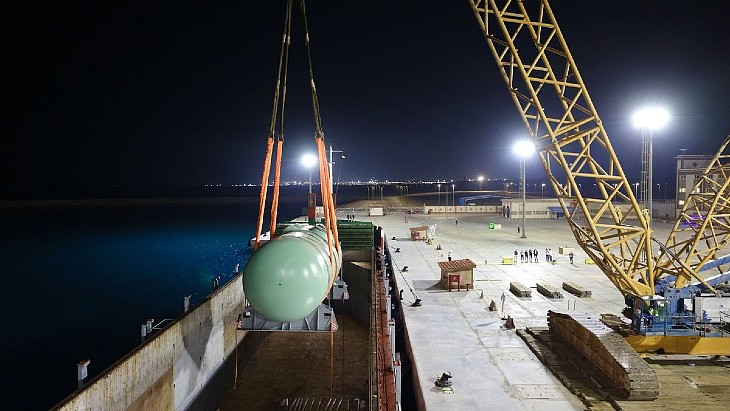




_66668.jpg)

